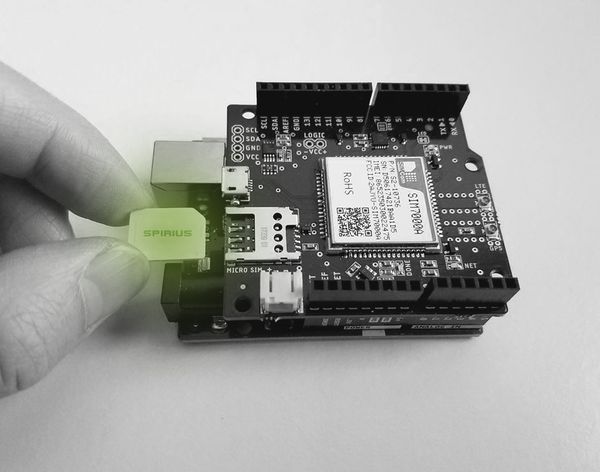Access Control Iot Devices What Is IoT Security Overview?

The landscape of manufacturing is evolving rapidly, pushed primarily by technological developments. Among these developments, IoT connectivity options for manufacturing automation stand out as pivotal components reshaping how industries function. The Internet of Things (IoT) integrates digital and physical worlds, making a community of interconnected gadgets that talk seamlessly. This interconnectedness permits manufacturers to optimize their processes and improve productiveness.
Real-time data is a cornerstone of recent manufacturing. Through IoT connectivity solutions, machines and sensors generate information that provide insights into manufacturing processes. This instant access to data empowers manufacturers to make informed decisions quickly. For instance, if a machine is underperforming, operators can determine the problem and implement corrective actions directly, ultimately minimizing downtime and enhancing throughput.
Predictive maintenance is one other important benefit of IoT connectivity options. By repeatedly monitoring tools performance by way of numerous sensors, manufacturers can anticipate failures before they happen. This proactive strategy drastically reduces maintenance prices and improves the lifecycle of equipment. Instead of adhering to a reactive maintenance strategy, organizations can optimize their maintenance schedules based mostly on precise machine conditions.
Iot Devices Raspberry Pi 18 Most Popular IoT Devices
IoT technology additionally facilitates better supply chain administration. With the integration of sensors all through the availability chain, producers gain enhanced visibility into inventory ranges and materials flows. This improved visibility permits companies to optimize inventory administration, ensuring that they have the required materials on hand without overstocking. Such efficiency interprets to decreased prices and improved service ranges, that are crucial for sustaining a competitive edge.
Automation and robotics are more and more reliant on IoT connectivity options. Smart factories combine automated systems powered by IoT to streamline manufacturing processes. Robotics outfitted with IoT capabilities can talk with one another and adjust their actions based mostly on real-time data from the environment - Best Web Access Iot Devices. This degree of synchronization enables the implementation of adaptive manufacturing systems that respond to fluctuations in demand quickly and successfully.
Implementing IoT connectivity solutions requires a stable community infrastructure. Manufacturers should spend cash on reliable and safe communication networks capable of dealing with the immense knowledge generated by interconnected devices. 5G expertise is rising as a crucial enabler of IoT connectivity in manufacturing. Its fast pace and low latency support the real-time functions which are essential for data-driven decision-making.
List Of Iot Devices IoT and Privacy Issues Overview
Data analytics performs a vital function in harnessing the complete potential of IoT connectivity solutions. With a wealth of information generated from related gadgets, producers must employ superior analytics instruments to extract actionable insights. Machine learning algorithms can determine patterns and anomalies in information that will not be apparent to human analysts. This data-driven approach enhances operational effectivity by driving steady enchancment throughout manufacturing processes.
Cybersecurity is an important consideration as manufacturers integrate IoT solutions into their operations. The connectivity that IoT brings will increase the surface space for potential cyberattacks. Implementing sturdy security measures to safeguard important manufacturing methods is paramount. This involves ensuring that every one devices are safe, knowledge is encrypted, and continuous monitoring for threats is in place.

Worker security is significantly improved via IoT connectivity solutions. Wearable devices outfitted with sensors can monitor the health and security of workers in actual time. These smart wearables can alert personnel to hazardous conditions, ensuring well timed intervention. Such measures not solely shield employees but additionally contribute to general productiveness by minimizing the chance of accidents.
The transition to smart manufacturing via IoT connectivity options also promotes sustainability. By optimizing processes, manufacturers can considerably scale back waste and energy consumption. IoT gadgets assist track resource utilization, enabling companies to identify areas where effectivity could be enhanced. These environmentally friendly practices not only profit the planet however can even result in price savings over time.
Remote Ssh Into Iot Devices What Is the Internet of Things?
The influence of IoT connectivity solutions on manufacturing extends beyond the operational realm. They enable enhanced customer engagement by permitting producers to deliver customized products and services. Through IoT-enabled gadgets, manufacturers can collect knowledge about buyer preferences, leading to the creation of tailor-made choices that higher meet market calls for. This degree of engagement fosters customer loyalty and strengthens brand status.
In conclusion, IoT connectivity solutions More about the author for manufacturing automation symbolize a transformative force within the trade - List Of Iot Devices. By offering real-time insights, predicting equipment failures, enhancing supply chain management, and enhancing employee security, these options redefine operational efficiency. As manufacturers continue to combine IoT technologies, the advantages prolong past conventional metrics of productivity and cost. Embracing these innovations units the groundwork for a extra sustainable and responsive manufacturing environment that's equipped to meet the challenges of the future.
- Enhanced real-time monitoring through IoT sensors allows producers to track equipment performance and operational efficiency.
- Predictive maintenance is facilitated by IoT connectivity, lowering downtime and lengthening equipment lifespan via well timed interventions.
- Seamless integration of IoT units throughout manufacturing strains enhances knowledge assortment, resulting in improved decision-making processes.
- Wireless technologies similar to LPWAN enable cost-effective communication over huge manufacturing amenities, minimizing installation complexity.
- Cloud-based IoT platforms present scalable options for knowledge analytics and visualization, empowering producers to establish trends and optimize workflows.
- Enhanced asset tracking utilizing IoT gadgets ensures higher stock administration and decreased losses due to misplacement or theft.
- Industry-specific IoT protocols, like MQTT and CoAP, guarantee environment friendly and safe information transmission tailored to manufacturing wants.
- Advanced cybersecurity measures are crucial in IoT ecosystems to guard delicate operational data from potential threats and breaches.
- Integration of IoT with machine studying algorithms permits for autonomous adjustments and enhancements in production processes based mostly on historic data.
- Collaboration with IoT solution providers allows producers to customise connectivity methods that address their unique operational challenges.
What are IoT connectivity options for manufacturing automation?
IoT connectivity options enable seamless communication between machines, sensors, and units within a producing environment, facilitating knowledge change, monitoring, and management to boost operational efficiency and decision-making.
Remote Access Iot Devices Open-source IoT Platforms Available

How do IoT connectivity options improve manufacturing processes?
These solutions streamline workflows, scale back downtime, and optimize asset utilization by providing real-time data insights, enabling predictive maintenance, and enhancing supply chain visibility.
Example Of Iot Devices 9 IoT Devices Integrate with ERP
What types of IoT connectivity technologies are commonly used in manufacturing?
Common technologies embrace Wi-Fi, Zigbee, LoRaWAN, cellular (4G/5G), and Bluetooth. Each know-how provides distinctive advantages based on range, data switch velocity, and energy consumption suited to totally different manufacturing wants.
How secure are IoT connectivity solutions for manufacturing?
Remote Access Iot Devices Examples What Are IoT Devices? Overview
Robust security measures, together with encryption, gadget authentication, and community segmentation, are essential to protect manufacturing environments from cyber threats, ensuring information integrity and operational continuity.
Can IoT connectivity solutions be integrated their website with existing manufacturing systems?
Yes, many IoT options are designed for interoperability, permitting integration with legacy systems and tools. This enables producers to enhance their capabilities without replacing current infrastructure.
What are the fee implications of implementing IoT connectivity solutions?
Do Iot Devices Get Updates? What Is Internet of Things?
Initial setup prices may differ, but long-term savings are often realized through elevated effectivity, reduced waste, and improved maintenance methods. A detailed cost-benefit analysis can help decide the financial impression.
How can I choose the proper IoT connectivity solution for my manufacturing facility?
Access Control Iot Devices Smart IoT Home Overview
Evaluate components such as scalability, reliability, ease of integration, and specific use case requirements. Consulting with trade consultants and conducting pilot tasks can help in figuring out one of the best match for your wants.
What are the challenges in adopting IoT connectivity options for manufacturing?
Challenges could include cybersecurity issues, interoperability points, and the need for staff coaching. Addressing these obstacles by way of strategic planning and stakeholder involvement can facilitate successful adoption.
What Are Iot Devices What Is IoT Device Management?
How does information collected via IoT connectivity influence decision-making in manufacturing?
Real-time data analytics allows manufacturers to make informed selections shortly, optimizing operational processes, bettering high quality control, and enabling proactive administration of sources and potential points.